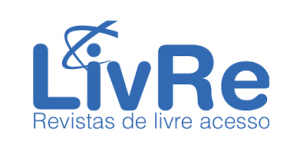MODELOS PROBATÓRIOS E CONCEPÇÕES DE VERDADE: UMA ANÁLISE EPISTEMOLÓGICA CRÍTICA DA PROVA PENAL
DOI:
https://doi.org/10.55839/2358-7008RCDv13n1pa133-154Resumo
Este artigo investiga a influência das diferentes correntes filosóficas sobre a verdade nos métodos de avaliação da evidência no processo penal, com foco nos limites e oportunidades que cada uma oferece para a fundamentação das decisões judiciais. A análise crítica dos modelos objetivistas acríticos e subjetivistas construtivistas da verdade revela suas inadequações para justificar racionalmente o juízo de fato. Argumenta-se que uma concepção de verdade fundada no objetivismo crítico, reconhecendo a existência de uma realidade objetiva embora não plenamente acessível, alinha-se melhor aos princípios do devido processo legal e à necessidade de motivação racional das decisões penais. O objetivo principal é demonstrar que somente uma teoria da verdade como correspondência crítica, que exige a conformidade das narrativas com fatos empiricamente verificáveis, possibilita o controle intersubjetivo e racional da valoração das provas, contribuindo para o debate sobre a verdade e a prova no processo penal.
Downloads
Publicado
Como Citar
Edição
Seção
Licença
Copyright (c) 2025 A REVISTA REFLEXÃO E CRÍTICA DO DIREITO utiliza uma licença Creative Commons - Atribuição-Não Comercial BY-NC 4.0 Internacional. Os autores dos trabalhos aprovados autorizam a revista a, após a publicação, ceder seu conteúdo para reprodução em indexadores de conteúdo, bibliotecas virtuais e similares. A revista se permite o uso dos trabalhos publicados para fins não comerciais, incluindo o direito de enviar o trabalho para bases de dados de acesso público.

Este trabalho está licenciado sob uma licença Creative Commons Attribution-NonCommercial 4.0 International License.
A submissão de artigos à REVISTA REFLEXÃO E CRÍTICA DO DIREITO está vinculada à licença da Creative Commons CC BY-NC 4.0 internacional. Através desta licença, o autor mantém seus direitos autorais, mas permite, para fins não comerciais, que as pessoas possam copiar e distribuir o seu trabalho, reservando os respectivos créditos, nas condições especificadas.
Ao submeter artigos à REVISTA REFLEXÃO E CRÍTICA DO DIREITO o (a) autor (a) já autoriza sua publicação, em caso de aceitação, após o devido processo de avaliação, ciente da política de acesso livre do periódico.
O autor (a) declara ciência de que serão publicadas todas as informações consignadas na submissão, incluindo nome, afiliação, titulação e endereço eletrônico.
Da mesma forma, o interessado, ao submeter o trabalho no site da revista, DECLARA QUE É AUTOR (A) DO TRABALHO, BEM COMO DO VÍNCULO DAS DEMAIS PESSOAS TAMBÉM APONTADAS COMO AUTORAS, assumindo inteira responsabilidade por tais declarações.
O periódico não cobra nenhum tipo de taxa. Todas as submissões, avaliações e publicações são gratuitas, bem como o seu acesso é aberto e também gratuíto.







